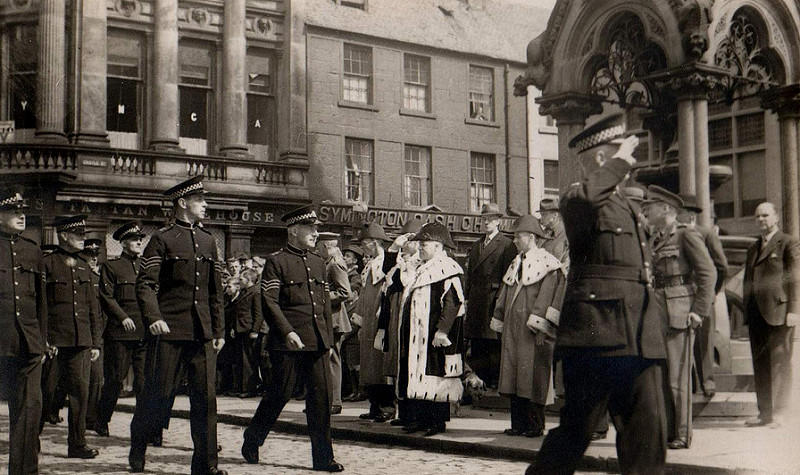The mission of theatre, after all, is to change, to raise the consciousness of people to their human possibilities
Arthur Miller
The beauty of theatre continues to entertain and uplift audiences across the globe. It is an art form that can make us escape reality, but excellent plays will leave a lasting imprint or lingering question in the mind of each audience member.
Theatre is made to have an effect on us and names like Bertolt Brecht, William Shakespeare, Chekhov and Arthur Miller are some of the most significant historical theatre practitioners that contributed to what we see on stages today.
You will also hear many drama students and performing artists confess their undying love for theatre. Many prefer theatre above film and television as they get the opportunity to improve their characters and feel the thrilling energy of audience participation every night.
Learning and truly understanding acting methods will bring any aspiring directors, actors or theatre practitioners one step closer to leaving their mark in the world of entertainment. This article will explain how Bertolt Brecht left his legacy and lasting impression on stages across the globe.

Bertolt Brecht: A Short Biography
Born in 1898 in Augsburg (Germany), Bertolt Brecht is seen by many as a theatre practitioner that changed the face of modern theatre. Known for his literary works across the globe, Brecht was a poet, playwright and theorist of what is known today as the Brechtian Acting Method.
His works were heavily influenced by the First and Second World War, Chinese Theatre and filled with Marxist ideals. The political nature of his material was certainly not favoured by the German Nazis and he was forced to flee to Scandinavia from Munich before settling in The United States.
Bertolt was driven by a motivation to create theatre that has more meaningful than only providing entertainment to audiences. He wanted audiences to develop strong and rational decisions instead of getting lost in story and entertainment.
It was thus through his expressive application of irony and provocative themes in what some would say was socialist plays, that he intrigued, captivated and influenced audiences.
Bertolt Brecht's plays gained popularity post-War in 1950s, 60s and 70s.
He returned to Europe in 1947 and by the age of 58, before his passing in Berlin in 1956, Brecht left the world with a refreshed approach to theatre, an impactful societal art and popular titles like Mother Courage and Her Children, The Resistible Rise of Arturo Ui and The Threepenny Opera.

The Brechtian Acting Techniques
Brechtian techniques are significantly different to those of traditional dramatic acting. You can imagine that with a core motive to evoke rational and political decisions in audience members, the Brechtian style was less emotion-driven while creating recognisable visible traits in its use.
Some of the Brechtian Acting Techniques that we still see today include:
- Breaking the fourth wall – Actors see no separation between them and the audience. They will invite audience participation and directly address them.
- Narration – Someone will tell parts of, or the entire story to remind spectators that they are watching a representation of events. Sometimes the narrative will even tell them what is about to happen to anchor it in realism and in turn reduce the emotional and dramatic impact that surprise could've had.
- Actors out of character – Actors will break character during highly emotional scenes, again reminding the audience that they are only performers delivering commentary around very real issues. This can seem counterintuitive for those actors trained in method acting or other acting techniques, but if its done with meaning and intention, it changes the dynamic completely.
- Use of song, music and dance – Not only did he love these art forms, he also used them as elements to create conflict and contrast in his plays. Utilising music in the background to again differentiate the story from the reality and sometimes happy music would play against the grotesque nature of the scenic events and lyrics.
- Montage – A short movie clip is used to portray factual events. Brecht used this to highlight certain social or political aspects and placed them in a juxtaposition against each other to really get audiences thinking.
- Minimising costumes, sets, props and lighting – Brecht was known to simply light the stage with a bright light, not engaging in creative lighting techniques and allowing the actors to tell the full story. He also kept props to a minimum by allowing each performer a single prop if needed and insisted that they are reused and recycled in different shows by different actors.
- Using placards or projection – Placards and projection mechanics were all aids in the telling of story. Important information about factual events or the characters, especially about the war and historic events, aided an informed opinion about the piece.
- Freeze frames/tableau - Brecht’s techniques weren’t reliant on building tension like dramatic theatre is, he actually wanted people to take a breather while important points land and sink in. A freeze frame with some narration, fourth wall breaking, character breaking, or other tactics allowed this to happen.
South African pantomimes, like those you would see at the Johannesburg Theatre or in children’s theatre, portray many of these traits. The actors will make jokes while they provide comment on political and social issues while directly engaging and connecting with the audience. Solid proof how the Brechtian acting techniques are still being used in today’s modern theatre.

The Significance of the Bertolt Brecht Methods
It should already be quite evident that Brecht introduced a new form of entertainment and story narration into the world of theatre. Quite different to the acting theory of classic teachers or theatre professionals like Stanislavski, his style was probably most recognisable in how he approached character; in a removed way.
While acting techniques by others focused the audience on relating to the plight of the character, his belief was to give spectators an objective focus on the moral aspects of the story.
While Stanislavski’s acting technique focused on the internal and psychological aspects of the character, Brecht approached actor emotions and thoughts from an external point. Brechtian plays also allowed actors and narrators to comment on character thoughts, emotions and actions, providing a different insight into the character’s personal flaws and perspective.
The Brechtian style has become highly recognisable in how it was executed in Brechtian plays. Two performance aspects that differentiated his work from the Stanislavski’s were termed Verfremdungseffekt and Gestus:
- Verfremdungseffekt – Also known as the estrangement effect or alienation. The actor and audience is reminded that they are simply performers portraying several roles. This is reinforced during rehearsals and is also visible on-stage where the set is arranged to face the audience while Brechtian actors move in and out of different characters. The Verfremdungseffekt was not invented but Brecht, but he coined it, and it became a fundamental part of Epic Theatre.
- Gestus – Combining gesture and social meaning into the same action, Gestus was invented by Brecht to mimic social relationships through specific movements. As example, a soldier can salute on stage while marching, but the moment they do the same action with bodies strewn across the stage it becomes gesture with social comment, or Gestus, because of their social position.
Read the rest of our articles in this series to learn what exactly drama is.

One of the Fathers of Epic Theatre
The new genre of epic theatre, or dialectical theatre, was established in the mid 20th century as a response to the political, social and economic climate of the world. Epic theatre was not attached to the character and their story, but was driven by empowering audiences to form opinion, removing it from emotive influence in the same way Brecht tried to do.
Dramatic theatre pieces are centred on storyline, plot and the eventual resolve of character conflict.
Epic theatre is less about entertainment and more about social commentary, which is why it’s episodic or chunked-down chapter approach seems more fitting and unemotional. It also has no chronological flow and sometimes jumps through time while clearly formulating its arguments and political statement.
This genre exists today and many of its experimental effects in theatre due to the Brecht and names like Erwin Piscator, Vladimir Mayakovski and Vsevolod Meyerhold.
There's no denying in the fact that Brecht's work has inspired many performers, practitioners and spectators. People still use his thinking and style to inspire their modern theatre productions and plays.
May you find inspiration in his works and all the best with your ambitions around creating lasting impressions in your theatre career.
Summarise with AI:















